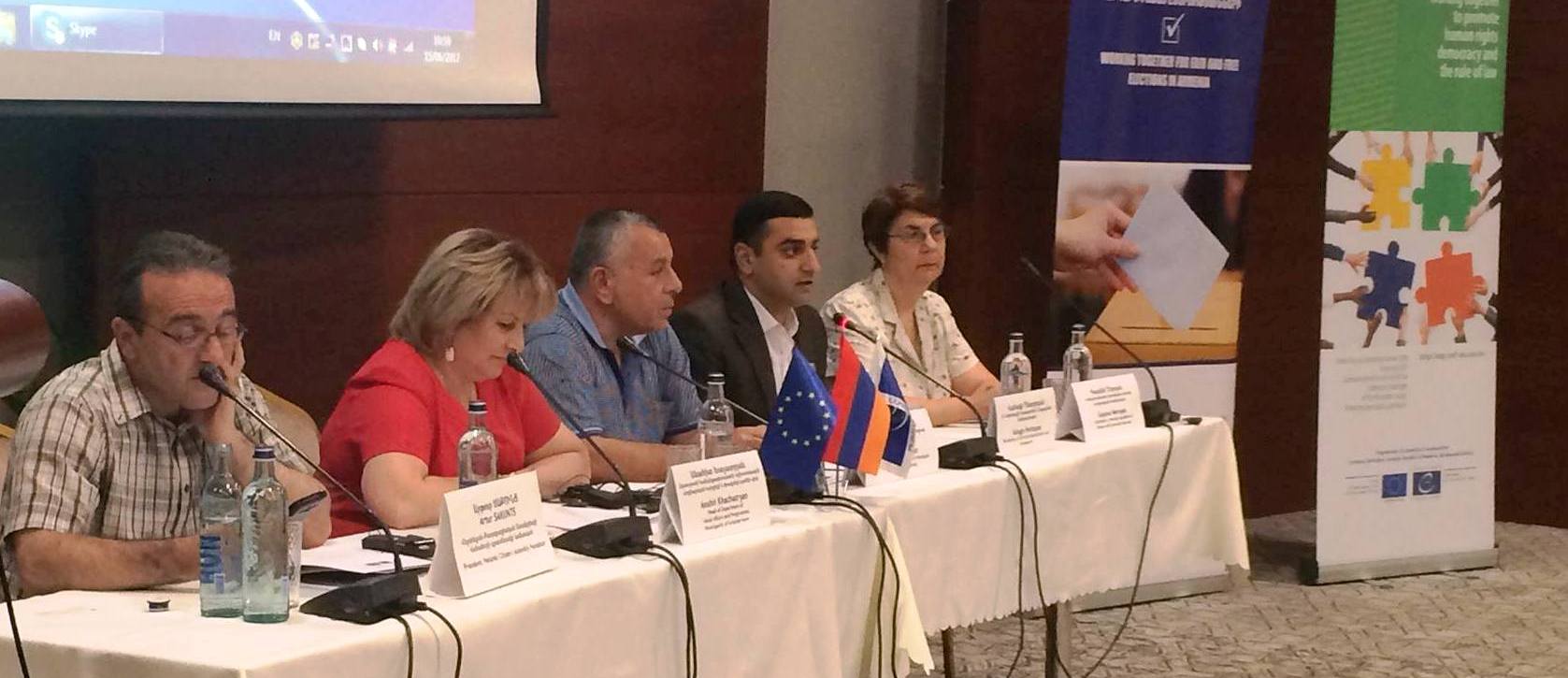On 6 December 2015 Armenia adopted amendments to the constitution by a referendum and moved from a semi-presidential to a parliamentary regime. Based on the requirement of the electoral system as introduced by these amendments the new Electoral Code was adopted on 25 May 2016 with 102 votes in favour, 17 against and 3 abstentions.
Despite the adoption of a new Electoral Code, the local elections held in fall 2016 were governed by the 2011 Electoral Code, with the only exceptions in the 2nd and 3rd cities of Armenia by population size, Gyumri and Vanadzor. The regular elections of the Armenian National Assembly based on the new Electoral Code were held on 2 April 2017, with 28,021 domestic observers and a number of international observation missions involved in election monitoring. One month later, on 14 May 2017, Yerevan city council elections were held.
To examine the organisation and management of all these recent elections and to discuss further improvement of the electoral process and system in Armenia with members of the government, local communities and the Central Electoral Commission as well with representatives of political parties, international community, civil society and media, Council of Europe organised the Conference “Electoral Developments in Armenia: Lessons Learned and Steps Ahead” on 15 June in Yerevan.
While referring in his welcome remarks to the conduct of the recent parliamentary and Yerevan municipal council elections, the Head of Delegation of the European Union to Armenia, Ambassador Piotr Świtalski recommended to further amend the Electoral Code in consensus with all stakeholders, to further improve the implementation by institutions to increase credibility notably of the Central Electoral Code and to address even stronger shortcomings that happen before and after the Election Day, in particular, vote buying, abuse of administrative resources and intimidation of employees.
The Chairman of Central Electoral Commission Tigran Mukuchyan urged to pay attention also to positive developments in the recent elections, since from his point of view a clear progress has been made.
The approximately 70 participants discussed the different conditions for local elections in small versus large communities, local elections in consolidated communities, legal provisions on gender quotas, women’s representation at local and national level, youth participation in elections, election campaign via mass media, practices of electoral commissions, usage of new electoral technologies, monitoring of broadcasted electoral coverage, challenges for the domestic observation missions about specific cases of electoral violations and appeals.
Participants, in particular from CSOs, qualified the event as a space they don´t have easily in other occasions, an important opportunity for dialog between different electoral stakeholders, to express their views, present constraints and challenges faced during the previous elections and to underline good practices that could be applied in future elections in Armenia.
The conference aimed also to give an overview and to evaluate the activities implemented by Council of Europe in the run-up, during and after the recent elections in Armenia, to strengthen the capacity of main election stakeholders, involving both the electoral authorities and civil society. These activities were implemented in the framework of the country-specific “Long-term electoral assistance to the election related stakeholders of Armenia” Project, which ended in June and was funded within the European Union and Council of Europe Programmatic Cooperation Framework in the Eastern Partnership Countries for 2015-2017.

